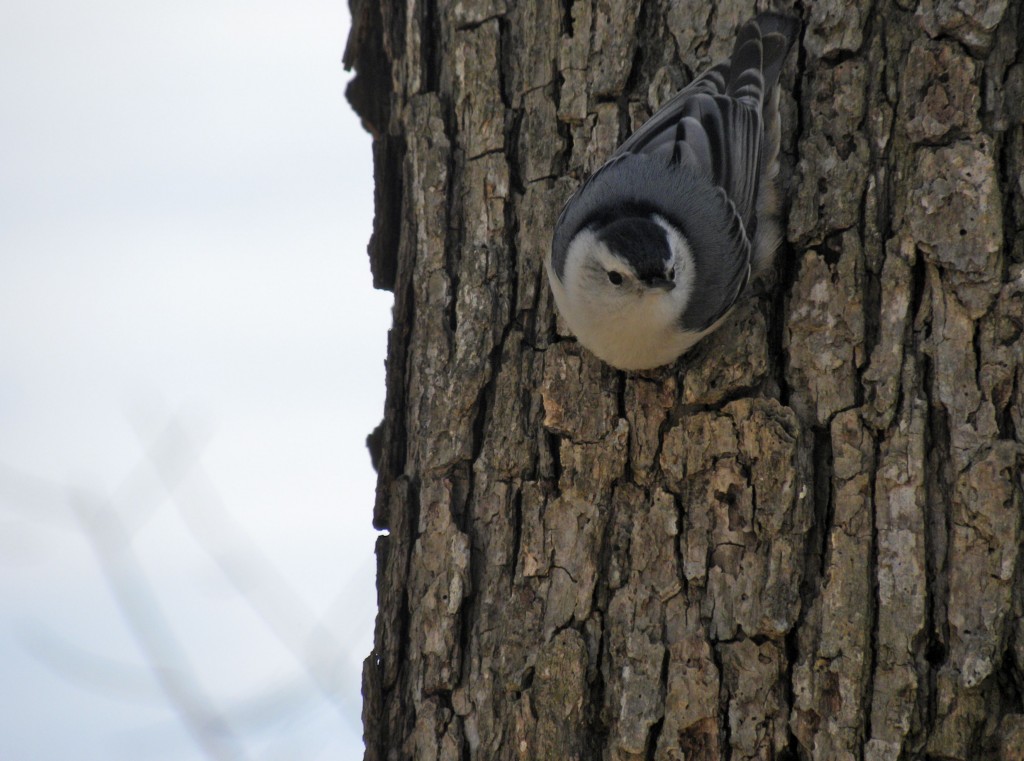June 29 2012. This morning at the end of the third of four point counts I heard a nuthatch calling; just briefly. I replayed it in my head a few times, comparing it to the many I’ve seen and heard at the bird observatory where I help out, I weighed the evidence, set aside a clanging alarm bell and called it as a White-breasted Nuthatch. A mistake.
Around here there are two nuthatch species which are possible to confuse if you’re not paying attention; but with a few moments care and study there should be no doubt. The White-breasted Nuthatch (WBNU -see photo below) is the larger of the two by about 20%, it has plain ivory-white undersides; the smaller Red-breasted Nuthatch (RBNU) has a fairly pronounced terracotta wash to its breast and belly. They sound a bit alike, each making little nasal grunting sounds as they move around the trunks and branches of larger trees; WBNU says “aunk aunk” and RBNU more like “eenk eenk”. And, – here’s a key difference: WBNU prefers deciduous hardwood forests while RBNU favours coniferous forests. So: size, breast colour, call and habitat, four good cues for a reliable identification.
Ten minutes later we started the fourth point count and the nuthatch obligingly called again. This time there could be no mistake; the sound was definitely the higher pitched Red–breasted Nuthatch and the setting was right; we were in a grove of Eastern Hemlock. I corrected the record, reprimanded myself lightly for my earlier mistake and then celebrated it as Bird of the Day. It’s not that RBNUs are particularly rare; it’s just that I don’t hang around with coniferous types so much these days and I tend to miss them. A nice little bird.
Our point counts this morning were challenged by the steady background clamour of a large diesel engine, a generator, a pump or a farm tractor, I’m not sure which; whatever the cause it quite shattered the tranquility of these old woods and I’m sure I missed quite a few birds. Higher notes like those of Red–eyed Vireo, Ovenbird and Wood Thrush, and even Yellow–billed Cuckoo and Black–throated Green Warblers came through okay, but if any Acadian Flycatchers were calling they were totally lost.
